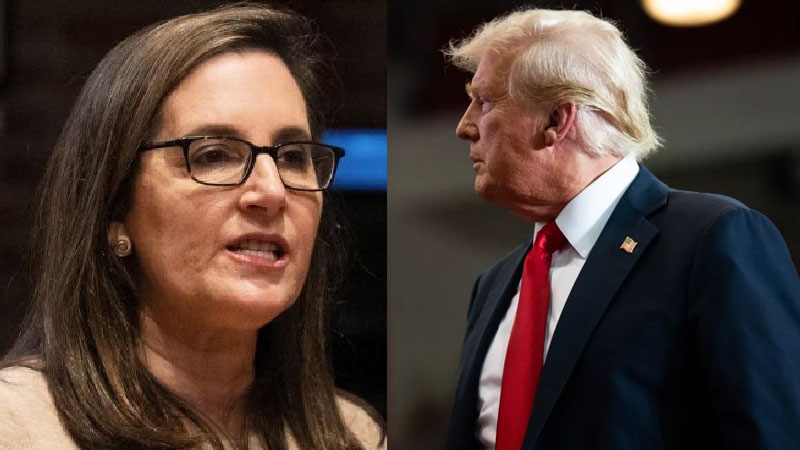Political Data Expert: Expiring Pandemic Safety Nets Were “A Grave Miscalculation” Leading to Harris’ Loss

Evelyn Hockstein/AFP/Getty Images
In the aftermath of Vice President Kamala Harris’ defeat to President-elect Donald Trump, Democrats and political analysts have offered various theories on why the election turned out as it did. However, political data expert Ben Davis presents a fresh perspective, focusing on economic policies that he argues shaped voters’ perceptions of the Democratic Party.
Writing in The Guardian, Davis, who previously worked on Senator Bernie Sanders’ 2020 presidential campaign, suggests that the rollback of pandemic-era safety nets under President Joe Biden played a decisive role in Harris’ loss. According to Davis, these policy decisions left voters feeling less secure and ultimately contributed to Trump’s return to the White House.
While some analysts argue that Trump’s victory was due to his more resonant economic message or a Democratic overemphasis on identity politics, Davis contends these explanations miss the mark. He notes that Harris’ campaign avoided a heavy focus on identity politics and instead prioritized practical economic concerns. Yet, despite this focus, Davis believes Biden’s choice to allow key pandemic-era social programs to expire may have alienated voters who had come to depend on these safety nets.
Davis describes the pandemic-era social safety net as an unprecedented expansion in U.S. policy, providing robust protections that directly improved the economic lives of millions of Americans. “The massive, almost overnight expansion of the social safety net and its rapid, almost overnight rollback are materially one of the biggest policy changes in American history,” he wrote. For a brief moment, Americans experienced what he calls the “freedom of social democracy,” with widespread protections for workers, tenants, and the unemployed, as well as generous direct financial assistance.

These policies, implemented during Trump’s first term, included measures like extended unemployment benefits, an eviction moratorium, and an expanded child tax credit. Davis argues that these programs helped Americans attain a level of economic security they had not previously experienced. As a result, when Biden ended these programs without a political strategy to continue or replace them, voters were left feeling economically vulnerable.
According to Davis, this created a significant perception gap: Trump was seen as a champion of economic security, while Biden and Harris struggled to fill the void left by the rollback of these protections. In his essay, Davis reflects on the impact of this change: “At the end of Trump’s term, the American standard of living and the amount of economic security and freedom Americans had was higher than when it started, and, with the loss of this expanded welfare state, it was worse when Biden left office.”
This decline in perceived economic security, he suggests, shaped voters’ views of Trump as a more effective steward of the economy. Davis argues that the Biden administration’s strategy to quietly phase out these benefits was a “grave miscalculation.” He contends that Democrats could have countered this by openly fighting to keep these protections and clearly communicating to the public that Republicans sought to dismantle them.
“An enormous body of research has established that social programs when implemented, are difficult and highly unpopular to take away,” he noted, emphasizing that the administration’s choice to avoid a public confrontation over these policies cost them vital support. “The political miscalculation the Biden administration made was that lacking the political ability to implement these policies permanently, it was best to have them expire quietly and avoid the public backlash of gutting welfare programs and the black mark of taking a public political loss,” Davis concluded.
Davis’ analysis highlights the challenges Democrats face in navigating complex economic policy choices and voter expectations. As Trump prepares for his second term, Davis’ insights suggest that Democrats’ approach to social safety nets may have inadvertently cost them voter trust and, ultimately, the election.


